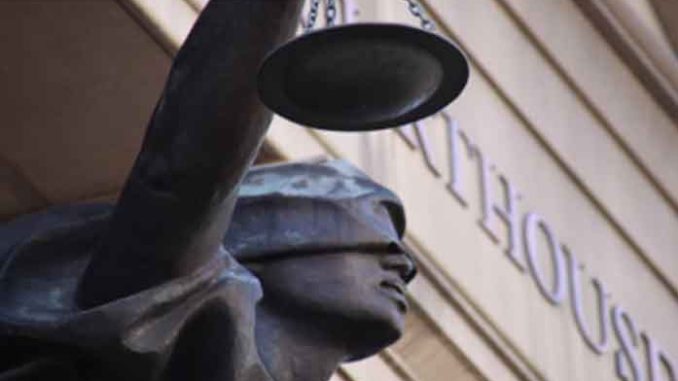
A Pima County man whose conviction for a 2016 sexual assault of an Uber driver was overturned on appeal in 2019, only to be reinstated by the Arizona Supreme Court last month, is not entitled to a new trial even though a detective improperly testified about the victim’s credibility.
Chris Thomas Gomez was sentenced to nearly six years in prison after being convicted by a jury of sexually assaulting the driver in an early morning attack. The victim identified Gomez as her assailant, detectives obtained a message he sent the woman about the incident, and some DNA taken from the victim’s body matched Gomez, now 36.
The jury also heard evidence of an “inconclusive” DNA profile a crime lab specialist testified had not been conclusively matched to Gomez or anyone else. However, Gomez could not be precluded as the source of the DNA, according to the specialist’s testimony.
In August 2019, the Arizona Court of Appeals reversed Gomez’s conviction and ordered him a new trial based on the introduction of inadmissible DNA evidence. The 2-1 decision noted the court was “unable to conclude beyond a reasonable doubt that the improperly admitted evidence…did not contribute to or affect the verdict.”
But last month, the Arizona Supreme Court reversed the appellate court decision, ruling the inconclusive DNA evidence was used to disqualify the woman’s husband as the source of the DNA, not to establish the identity of the assailant. The supreme court’s March 9 decision restored Gomez’s conviction and sentence which expires in August 2023.
However, the justices sent the case back to the court of appeals for review of an unresolved issue about whether the detective’s testimony about the victim violated Gomez’s right to a fair trial.
Court records show the detective vouched for the victim’s truthfulness when he testified to having determined the woman had in fact been sexually assaulted, which was a matter for the jury to determine. Such a comment can be considered an improper opinion and even lead to a mistrial if objected to at the time.
The court records also show Gomez’s defense attorney failed to object to the comment during the four-day trial. But the Arizona Attorney General’s Office conceded on appeal that the testimony represented a trial error.
The issue for the court of appeals was then whether Gomez demonstrated the error was fundamental and that it prejudiced his defense. A finding of both would require a new trial.
The court’s unanimous April 20 decision found that Gomez had not shown the detective’s testimony to be more than a mere harmless comment.
“Moreover, the trial court instructed the jury about its duty to determine the credibility of witnesses, and we presume the jury followed its instructions,” the decision states. “In sum, Gomez has not met his burden of establishing fundamental, prejudicial error.”
